The reality? Bad addresses cost money and distort your metrics, quietly pushing you toward the spam folder.
This guide cuts through the noise and looks at the top email verification tools for 2026 – the ones worth your time and budget.
Let’s dig in.
TL;DR
- Validating email addresses isn’t optional—list decay, spam traps, and invalid contacts can destroy deliverability fast, cutting inbox placement by up to 10% from even small errors.
- Email verification tools protect ROI by reducing bounces, improving sender reputation, and keeping cold outreach campaigns within safe deliverability thresholds.
- Bouncer leads the field with unmatched accuracy, speed, and advanced protections, while alternatives like ZeroBounce, Bounceless, and MailerCheck serve different needs but come with notable limitations.
Do you even need to validate email addresses?
Do you need to validate email addresses? Honestly, yes, unless you enjoy paying to send campaigns that never reach anyone.
Every invalid email on your list is more than dead weight. Even a 1% increase in invalid or spam-trap addresses can suppress inbox placement by up to 10%. That’s the kind of drop that turns a healthy 95%+ inbox placement rate into a deliverability problem overnight.
Unverified lists also decay fast. Up to 30% of contact data goes stale each year, and some industries lose 3-4% of addresses every month. If you’re not cleaning regularly, you’re sending to people who no longer exist in your target audience.
That chips away at email deliverability, drives bounce rates over the safe 2% threshold, and tells inbox providers you’re careless with your data.
Some marketers argue, “I clean my list manually” or “My ESP handles it.” But manual checks miss disposable addresses, spam traps, and subtle typos – and by the time your ESP flags them, your sender reputation may already be damaged.
Validation isn’t about chasing perfection but protecting reach and ROI. With email marketing returns averaging $36–$42 per $1 spent, even small improvements in list quality translate into measurable gains.
Skip validation, and you’re not just risking your data but gambling with every campaign you send.

Best email verification tools to try in 2026
So, without further ado, let’s check out the top email validation tools for 2026 and beyond.
#1 Bouncer – the best email verification tool on the market
Bouncer has, without a single doubt, secured its place as the benchmark for email verification services. The platform verifies addresses with top-tier accuracy, catching invalid and catch-all emails while keeping “unknown” results below 2%.
Our performance numbers speak volumes:
- more than 4 billion addresses verified,
- over 500 million bounces prevented,
- and 100% uptime.
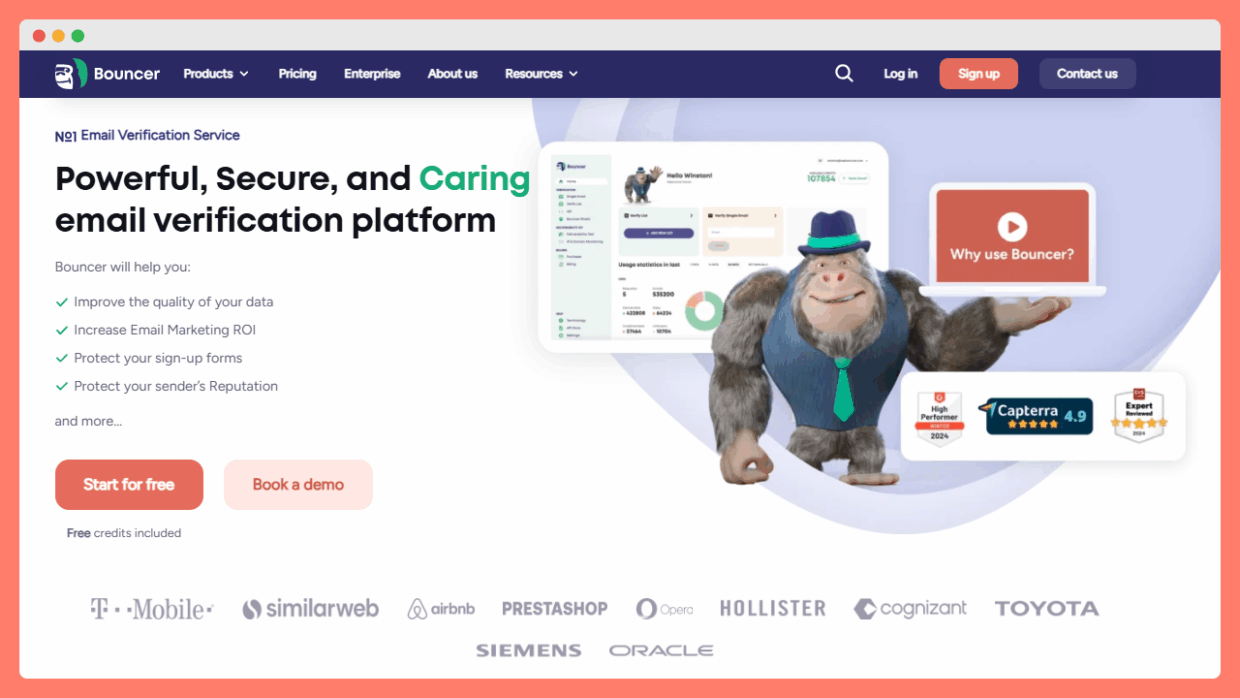
Speed is one of our biggest bragging rights. Large databases are processed in minutes, with results that users call “fast & accurate” and “available almost instantly.”
Yaroslav, a lead generation manager, summed it up: “Near-zero bounces and better deliverability.” Christina L., a marketing manager, praised our precision in detecting inactive or temporary emails, noting that “navigating the platform is pleasant and simple.”
The toolkit is deep:
- Bouncer Shield for form protection,
- Toxicity Check for spotting problematic addresses,
- a Deliverability Kit for inbox placement testing,
- and Data Enrichment to add context to contact lists.
API and CSV uploads make it equally comfortable for developers and non-tech users, and integrations with platforms like Mailchimp and ActiveCampaign keep workflows connected.
If there’s a “downside,” it’s that Bouncer is so feature-rich that smaller teams may not even use everything they get. And while pricing is slightly above the bargain-basement tier, users echo Max F.’s view: “You get what you pay for.”
For teams that care about speed and accuracy, together with data security, Bouncer remains the gold standard, built for those who want their outreach campaigns to land where they belong: the inbox.
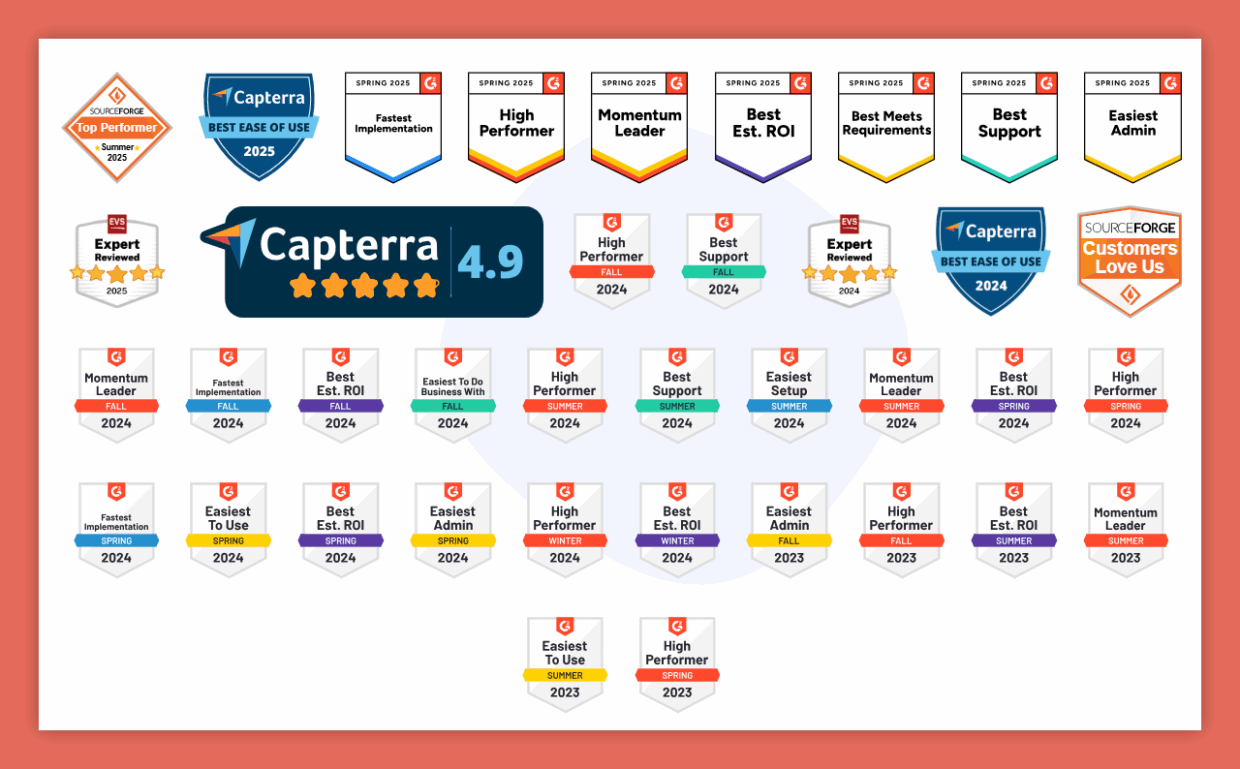
#2 ZeroBounce email checker
ZeroBounce remains one of the best email verification services to watch in 2026, trusted by companies across industries for cleaning large lists and protecting inbox placement.
Founded in 2015, it helps email marketers verify email addresses and detect spam traps before they harm deliverability.
Its email verification API integrates with over 60 email marketing tools, from Mailchimp to Constant Contact, letting teams verify lists without leaving their email marketing platform.
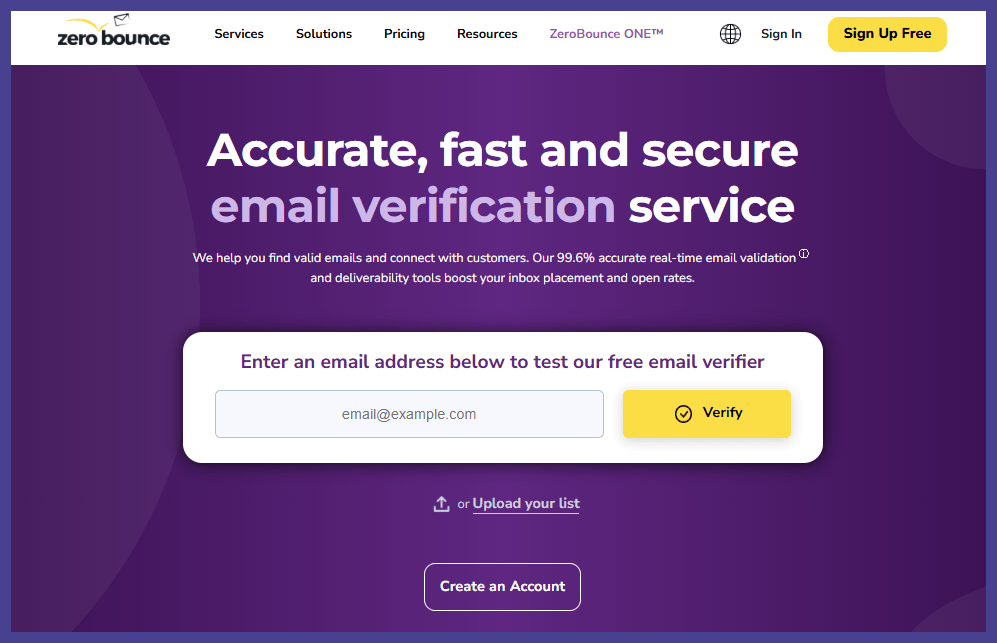
Pros:
- Users praise its user-friendly interface and data security.
- The platform is GDPR, SOC2, and HIPAA compliant, encrypting files during bulk email verification.
- It offers checks for catch-all domains and duplicate addresses, plus real-time verification.
- Reviews highlight responsive customer support and good value for the service.
Cons:
- Speed is a sticking point: verifying 10,000 emails takes around 110 minutes, slower than some other tools.
- Accuracy is strong for Gmail and Yahoo accounts, but lower for catch-all domains.
- Some users mention a steep learning curve and challenges with large list uploads.
Verdict:
A reliable tool for sales teams and marketers wanting to save money on outreach by avoiding risky emails and high bounce rates. Best for businesses that value security and detailed reporting over raw processing speed.
#3 Bounceless email verification solution
Bounceless is an email list validation platform built for marketers and enterprise teams looking to improve deliverability. It combines tools for operations like email verification and inbox placement testing in one dashboard.
The verifier checks syntax and mailbox status to remove invalid email addresses and reduce bounce rates, while the inbox placement tool predicts whether your campaigns will reach the primary inbox.
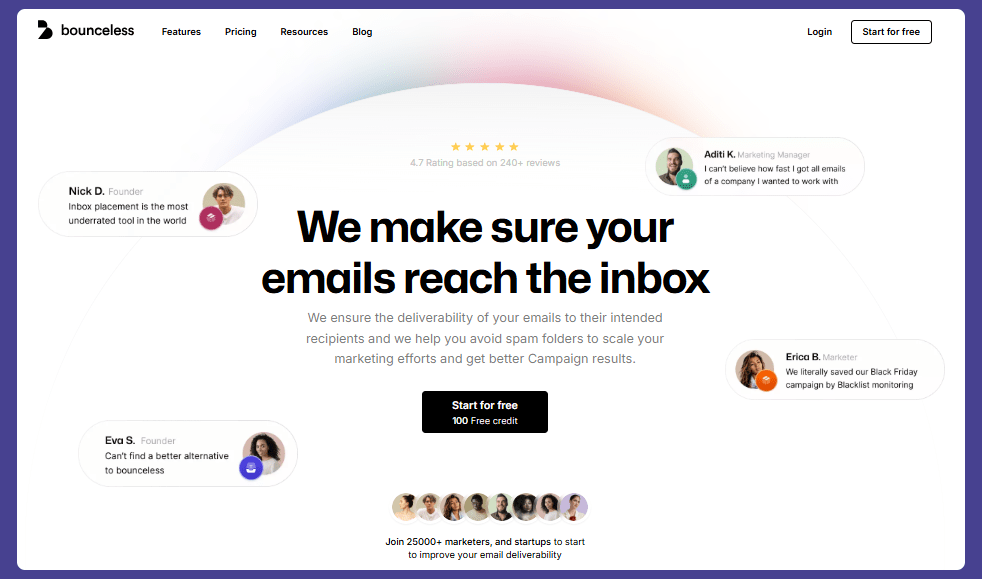
Pros:
- A broad feature set means you can clean lists and monitor blacklist status without switching tools.
- The email finder supports both single and bulk lookups, making it useful for sales prospecting.
- Pricing includes both subscription plans and pay-as-you-go options, with free trials available.
Cons:
- Processing speed can be slow, some users report 20 minutes for just 700 emails, and customer support response times may stretch to 24 hours.
- The Help Center lacks detailed documentation, and pricing can feel high for large volumes.
- Some reviews also mention that inbox placement reports are hard to interpret.
Verdict:
Bounceless is a fair choice for small to mid-sized teams that want more than basic verification. While it’s not the fastest option for bulk cleaning, its combined tools make it valuable for managing list quality and improving inbox placement in 2026.
#4 MailerCheck email validation software
MailerCheck has earned its place among the top email verification tools for 2026, especially for businesses that want speed and simplicity.
It helps verify email lists and clean invalid email addresses. With bulk email validation and real-time checks through an API, it’s a practical pick for teams running frequent outreach campaigns.
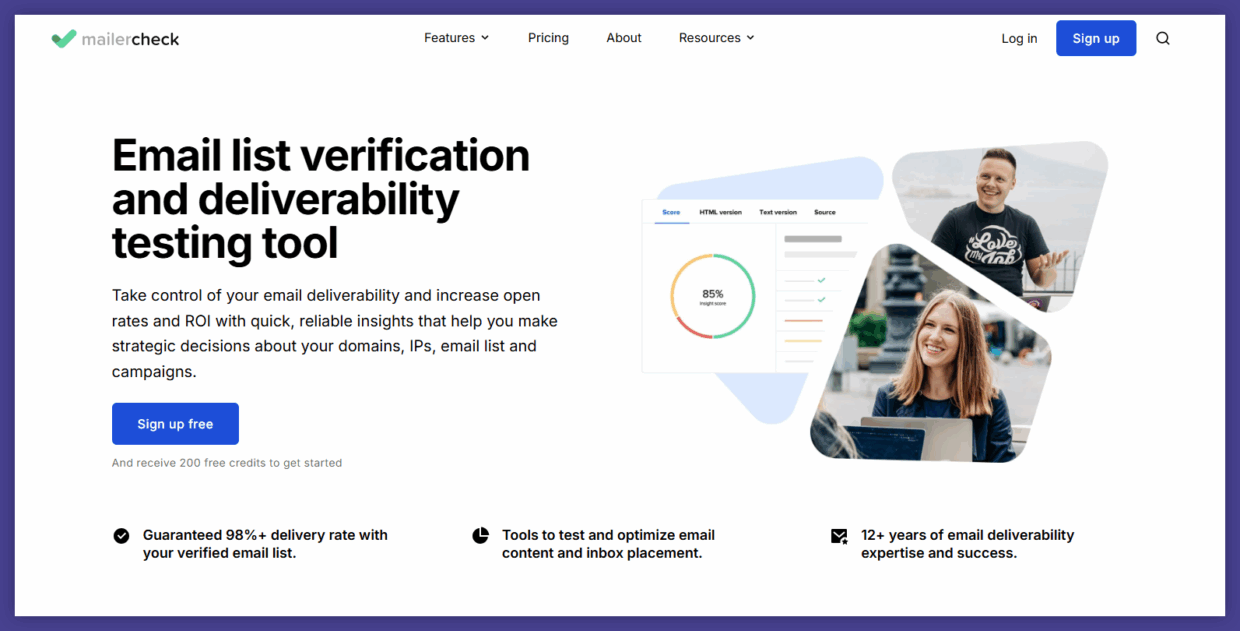
Pros:
- Users like its user-friendly setup and flexible pricing.
- You can start with a free account and 200 email verification credits, then choose pay-as-you-go or a monthly subscription.
- Features go beyond cleaning lists; there’s content analysis for email syntax issues and inbox placement testing with major email service providers.
- It’s also praised for how quickly it delivers results, even for large uploads.
Cons:
- Some say it lacks advanced features found in other verification tools.
- Reviews mention occasional over-flagging of addresses that might still be valid emails.
- Users dislike limited workflow automation and fewer result categories for borderline cases.
Verdict:
A straightforward, fast tool that’s ideal if you want to keep costs low and streamline lead generation. While it may not match the depth of bigger platforms, its speed and ease of use make it a strong choice for small to mid-sized teams.
#5 NeverBounce email testing tool
NeverBounce is a long-standing name among the top email validation tools for 2026, known for helping marketers verify email lists and reduce undeliverable emails. It removes up to 99.9% of bounced emails and works with over 80 email service providers through direct integrations, making it a natural fit for teams already using popular deliverability tools.
The platform’s hybrid system detects invalid email addresses, “accept-all” domains, and even unknowns. All so you get a deeper layer of protection for you email campaigns.
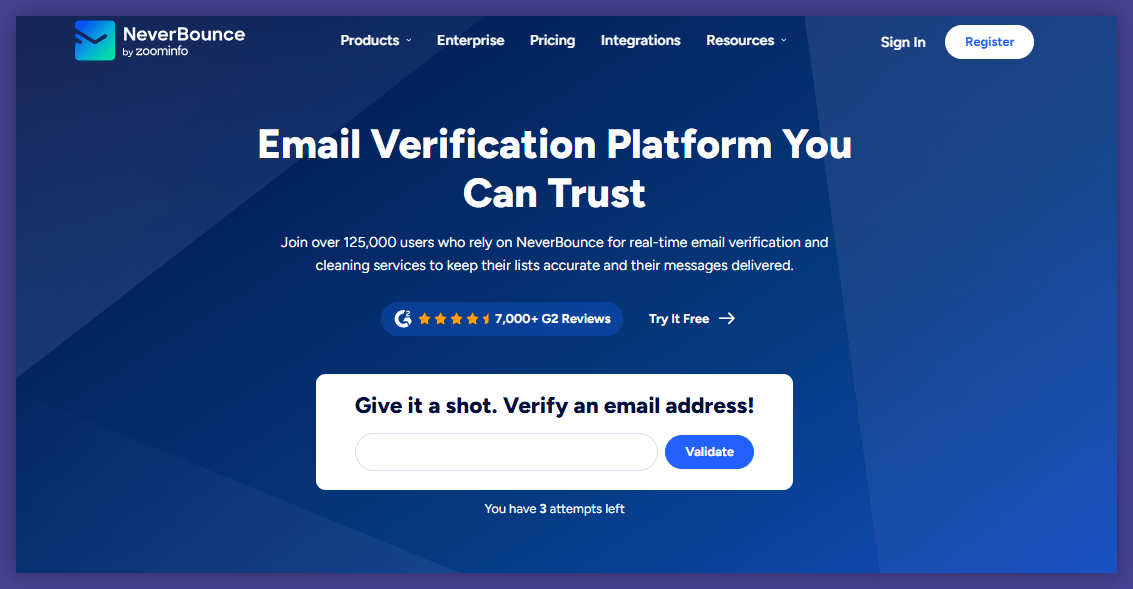
Pros:
- High deliverability rates and a free plan with credits for testing make it appealing.
- Its pay-per-email pricing scales down for larger lists.
- The wide integration library fits into most subscription plans without extra effort.
Cons:
- Some users report delays when processing very large batches, which can slow time-sensitive sends.
- Customer service response times have also been described as inconsistent, especially when troubleshooting or requesting detailed contact details reports.
Verdict:
A strong option if you want to keep spam complaints low and maintain sender reputation, particularly for businesses that send high volumes. While not the fastest on huge datasets, its accuracy and integration network make it a reliable choice for keeping lists clean and reaching potential customers.
#6 Hunter (Hunter.io) email platform
Hunter is a go-to pick for 2026 when you need more than list cleaning. It not only verifies if an email address exists but can also find it in the first place. That means you can search for professional contacts by company or person to get the address and then confirm it’s real before sending.
Its checks go deep, looking at SMTP servers and DNS records, then giving each address a confidence score so you know your sending risk. With the Google Sheets add-on and API, it fits into most workflows without extra effort.
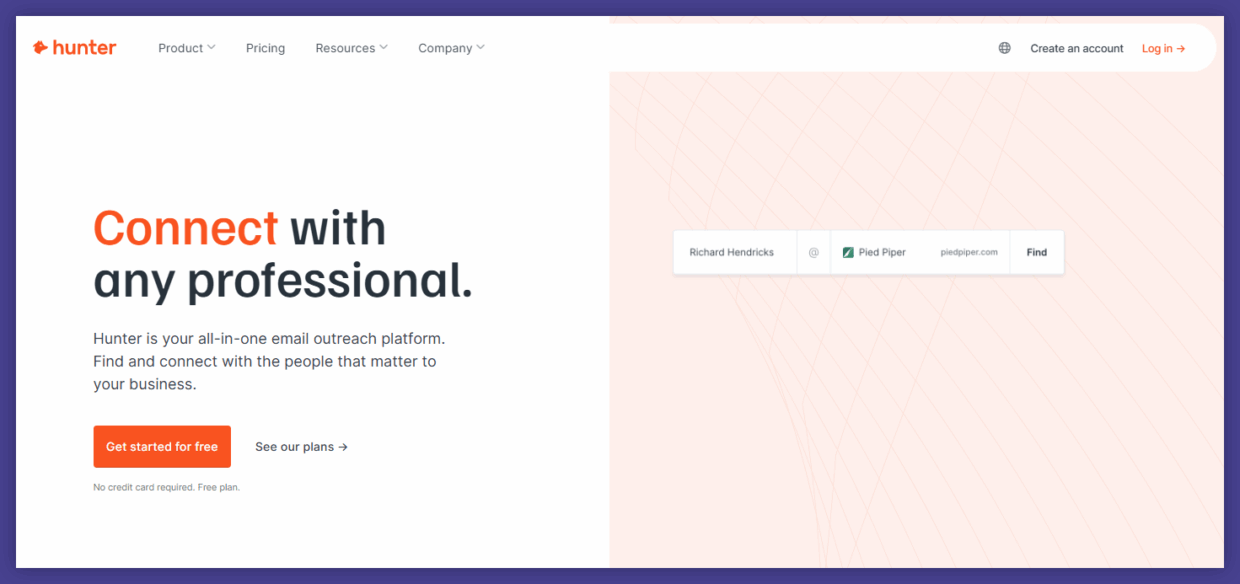
Pros:
- Combines finding and verifying in one platform, so you can run all the tools you need for outreach in one place.
- API and CRM integrations keep your contact data in sync, and the process is clear even for beginners.
Cons:
- Hunter doesn’t publish accuracy or speed data, so you’re relying on user experience rather than benchmarks.
- There’s also no mention of a money back guarantee or advanced list segmentation after verification.
Verdict:
Best suited for sales and marketing teams that need fresh, verified leads fast, not just a couple of cleaned addresses. While speed stats are missing, its dual role as finder and verifier makes it stand out from other verification tools.

#7 Clearout bulk email verifier
Clearout is positioned among the top email validation tools for 2026 thanks to its mix of verification, finding, and prospecting features. It helps businesses flag invalid email addresses and detect disposable or catch-all domains, aiming for bounce rates under 3%.
Beyond cleaning lists, its AI-powered prospecting tools make it easy to find and check leads directly from spreadsheets or LinkedIn in real time.
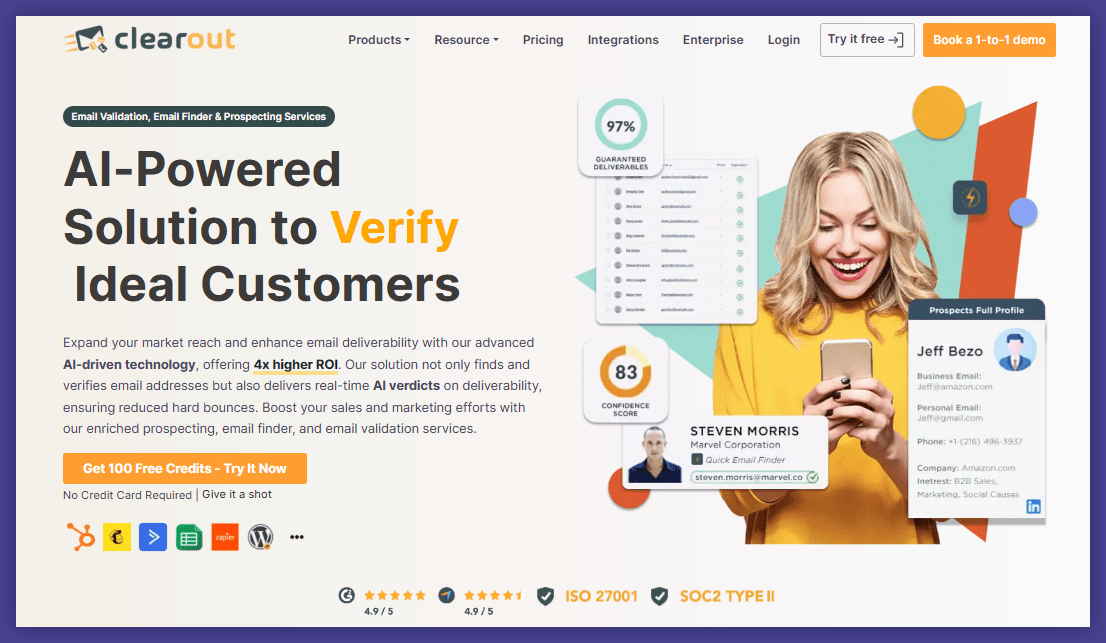
Pros:
- Combines bulk email validation with lead generation, so teams can both find and clean email addresses in one place.
- The LinkedIn plugin and web scraping tools help uncover potential customers without manual searching.
- The Confidence Score gives a quick quality check for each contact, and flexible pricing models cover pay-as-you-go or monthly plans.
Cons:
- Verification speed drops with very large lists, making it less suited for enterprise-scale processing.
- Accuracy is solid but not as high as top performers like Bouncer, and some reviewers say cheaper options exist for pure verification.
Verdict:
A stable choice for small to mid-sized teams that want more than a list cleaner. Clearout works best when prospecting and verification happen together, helping streamline lead generation while keeping email campaigns free from undeliverable emails.
#8 Snov.io email verification software
Snov.io blends email finding, verification, multichannel outreach, and CRM functions into one platform. For sales teams, that means you can discover leads, verify email addresses, send campaigns, track opens, and even warm up your domain without switching tools.
Its Chrome extension adds another layer, letting you pull contact data from LinkedIn in seconds.
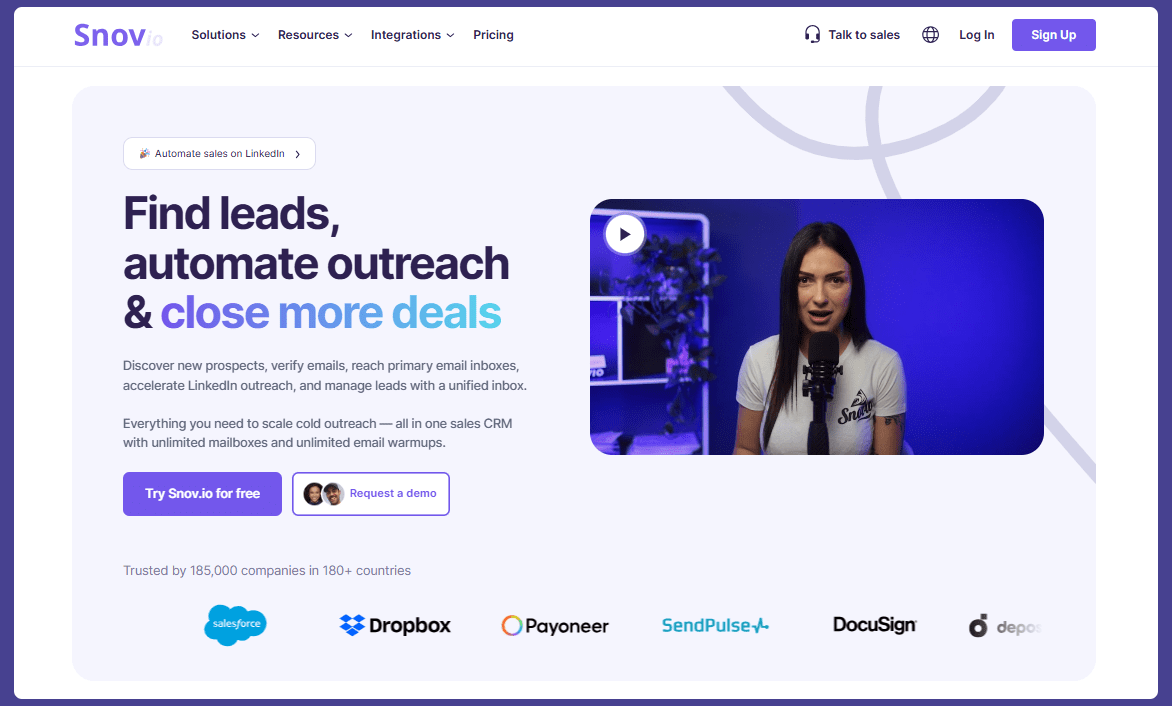
Pros:
- A true all-in-one platform for lead generation and outreach.
- The email verification feature checks for invalid addresses before they hit your campaigns, helping reduce bounce rates and improve deliverability.
- Integrations with major email marketing platforms keep workflows connected, and the tracking tools give instant feedback on prospect engagement.
Cons:
- If all you need is verification, Snov.io may feel heavy and more expensive than single-purpose verification tools.
- The starting plan gives 1,000 credits for all activities combined, so frequent verification can run through credits quickly.
Verdict:
Snov.io is ideal for sales teams that want a complete prospecting and outreach system with verification built in. It’s not the fastest or cheapest for bulk cleaning, but as part of a broader sales process, it’s one of the most capable options in 2026.
#9 lemlist’s email finder & verifier
lemlist Verifier sits inside the broader lemlist platform, giving sales teams a built-in email validation feature alongside outreach tools. It checks both email addresses and phone numbers and works with lemlist’s Email Finder through a “waterfall enrichment” method, said to return up to 55% more valid emails than some competitors.
Bulk verification and integration with email service providers make it appealing for teams running multiple client campaigns.
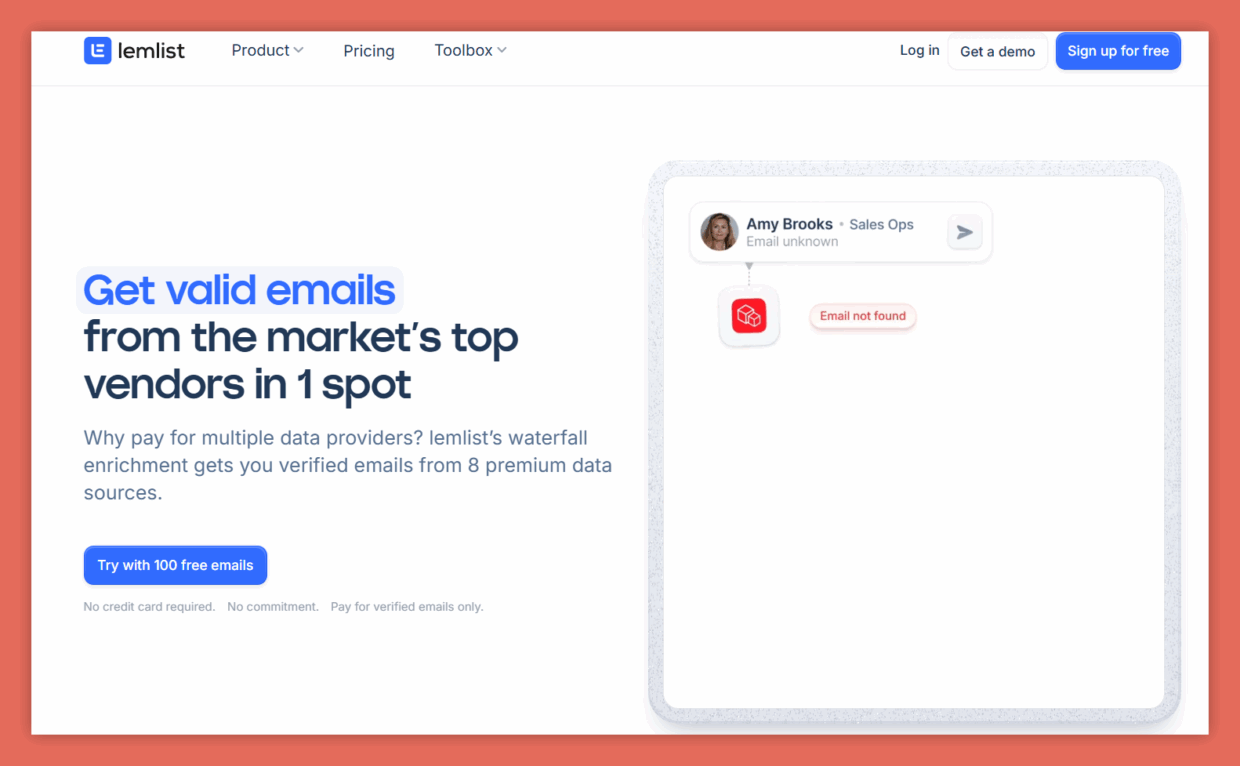
Pros:
- Strong synergy with lemlist’s outreach platform, so you can find, verify, and contact leads in one flow.
- Its bulk email verification covers SMTP servers and provider checks.
- The free plan includes 500 credits to start. For users already in lemlist, it’s a convenient all-in-one option.
Cons:
- You can’t buy the Verifier as a standalone tool, and verification credits are limited in lower plans.
- Reviewers note slower processing for larger lists, occasional UI frustrations, and a learning curve for beginners.
- The cost per verification can be high compared to other verification tools.
Verdict:
A good choice if you’re already invested in lemlist for outreach campaigns. If you only need fast, low-cost verification at scale, there may be more efficient options in 2026.
#10 Verifalia email validator
Verifalia has built a strong reputation in email list cleaning since 2005, serving over 35,000 customers worldwide. It offers bulk email verification for up to 40 million records, plus a real-time API to stop fake or disposable addresses from entering your database.
The system checks syntax, DNS records, SMTP servers, spam traps, and catch-all domains, even supporting non-Latin alphabets like Chinese or Cyrillic.
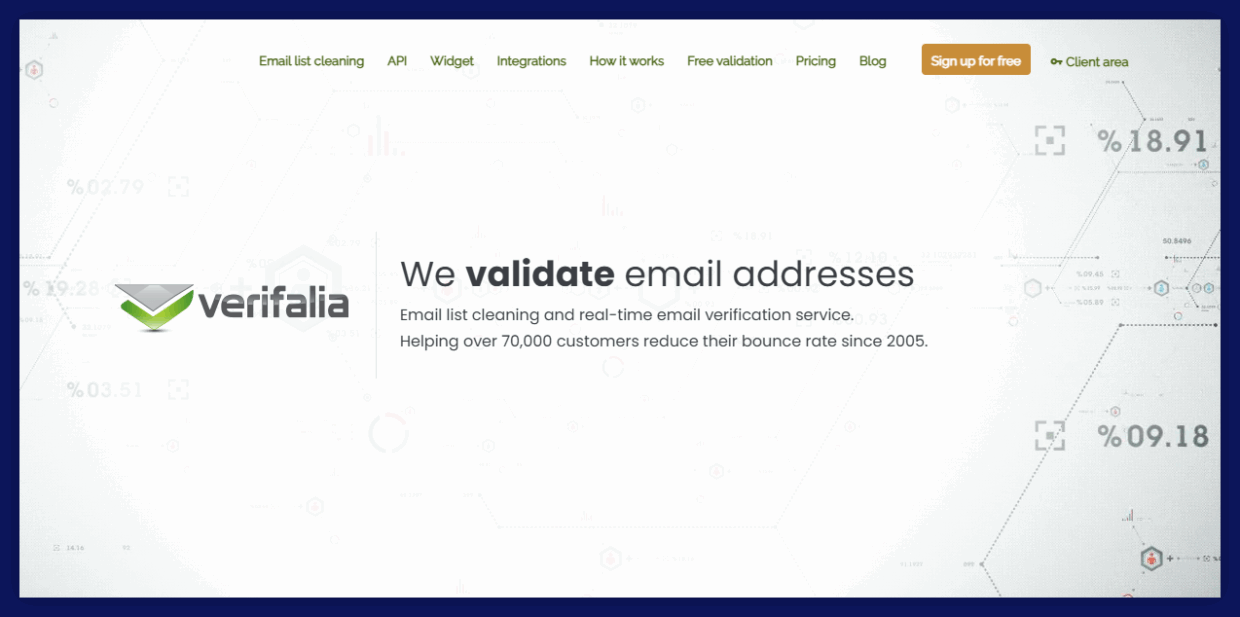
Pros:
- High accuracy, around 92% in independent tests, paired with strong spam trap detection and support for international email formats.
- Speed is a standout: verifying 10,000 contacts can take under 50 minutes on Standard Quality, with faster results on higher plans.
- The free plan is available, and the platform integrates well into existing workflows.
Cons:
- Credits on subscription plans expire daily, which can waste unused capacity.
- The three-tier quality system can drain credits quickly, and top speeds are locked behind higher-cost plans.
- Pricing can climb for those who need Extreme Quality or large volumes.
Verdict:
Verifalia is a common okay choice for businesses managing global campaigns that need both scale and precision. It’s fast and feature-rich, but credit management and plan structure require careful attention to avoid overspending.
Over to you
The best email validation tools go beyond catching typos. They protect against spam traps and reputation-killing bounces.
In 2026 and beyond, Bouncer stands out for its speed, accuracy, and extra deliverability safeguards.
No matter if you send a few thousand emails a month or run high-volume outreach, it’s the kind of tool that pays for itself the moment you avoid a blacklist.
So, start with Bouncer now and send with confidence, or simply check out the other recommendations from this article.


